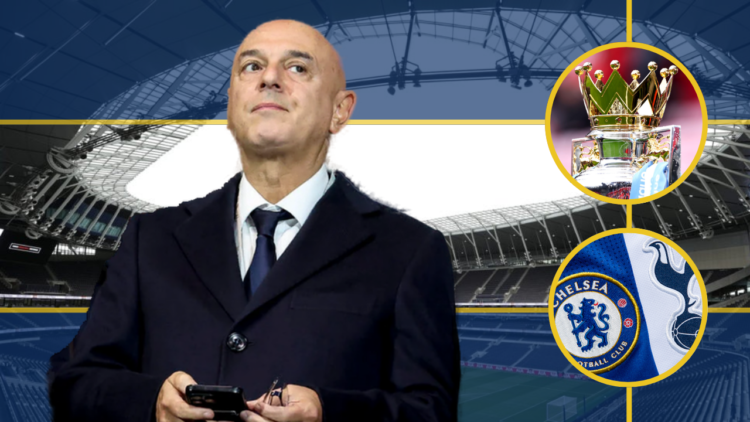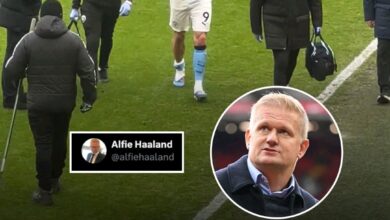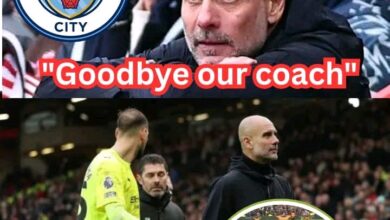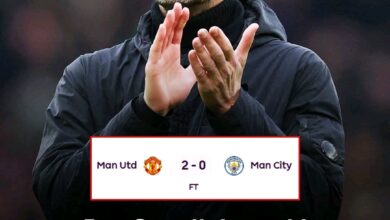Investigation confirmed after Chelsea blocked Daniel Levy and Tottenham from signing Premier League legend

Chelsea and Tottenham Hotspur have been embroiled in various legal and financial battles recently, becoming key figures in the ongoing financial disputes that have gripped the Premier League. These two London clubs, despite their proximity, have approached ownership and financial management from opposite ends of the spectrum. On one side, you have Daniel Levy and ENIC, the owners of Tottenham Hotspur for over two decades, who have taken a conservative, quiet approach to running the club.
Their strategy has largely been about ensuring self-sufficiency, with an emphasis on making the club financially stable without overspending, which has allowed the club to grow in terms of value and revenue. This approach, however, has often led to criticism from Spurs’ fans, who feel disillusioned by the lack of silverware and perceived lack of ambition in comparison to other Premier League clubs.
On the other hand, in West London, Chelsea’s ownership under Todd Boehly and Clearlake Capital has been anything but quiet. Their £2.25 billion acquisition of the club in 2021 marked the beginning of a new era, one marked by high-profile signings and a willingness to break the traditional financial boundaries. Chelsea’s spending has been astronomical, with over £1 billion invested in new players over just a few seasons, despite the club’s rapidly increasing wage bill. This aggressive spending strategy has raised concerns, particularly regarding compliance with the Premier League’s Profitability and Sustainability Rules (PSR), which are designed to prevent clubs from overspending and ensuring they maintain financial balance.
Chelsea has managed to skirt around the PSR rules through some creative financial maneuvering, a tactic that has caused friction with other clubs, including Tottenham. The club has been able to avoid breaching PSR by reporting its spending in a way that passes regulatory scrutiny. However, this has not stopped the growing criticism of their financial practices, particularly as they continue to make massive investments in player acquisitions.
In stark contrast, Tottenham Hotspur operates with a far more cautious financial philosophy. The club is not particularly concerned with the PSR rules because they maintain a tight rein on their spending, with every penny allocated in a way that is fully accounted for within the business. Levy has positioned Tottenham as a club that focuses on long-term financial health, and as such, they have more room to maneuver under the PSR than most clubs. This has led them to lobby for even stricter PSR regulations, hoping to stifle the spending sprees of clubs like Chelsea, which they see as financially reckless.
Both Chelsea and Tottenham were involved in a legal hearing in November regarding Manchester City’s challenge to the Premier League’s Associated Party Transaction (APT) rules. The APT rules dictate that any commercial agreements between a club and entities linked to its owners must be conducted at fair market value. In this case, Tottenham supported the Premier League’s stance on APT, while Chelsea sided with Manchester City, which has been accused of breaching financial regulations. This division is reflective of the broader conflict between the two clubs, as Chelsea has often been more willing to explore ways to stretch the boundaries of financial regulation, while Tottenham has advocated for stricter adherence to the rules.
Tottenham’s financial policies have also led them to consider seeking compensation should Manchester City be found guilty of the charges against them, which number over 115. Tottenham, along with other top Premier League clubs such as Arsenal, Liverpool, and Manchester United, have made clear their intention to pursue financial compensation if City is found to have breached regulations. Chelsea, however, has not indicated that they will follow suit, further highlighting the divide between the two clubs in matters of financial governance.
In addition to the ongoing financial disputes, Chelsea has recently found itself at the center of a different controversy. The club has admitted to making parallel off-the-books payments to players during the Roman Abramovich era, a move that has been under investigation by the Premier League. These payments, which were made to players like Samuel Eto’o, Willian, and Eden Hazard, were designed to avoid impacting Chelsea’s PSR calculations. The new ownership group at Chelsea, led by Todd Boehly and Clearlake Capital, discovered these irregularities during their due diligence process when they acquired the club and reported them to the Premier League. While there is no suggestion that the current ownership or the players involved did anything wrong, these payments could still result in penalties for the club if they are found to have circumvented PSR rules.
One of the more controversial aspects of the investigation centers around Eden Hazard’s transfer to Chelsea. Hazard, who was once a target for Tottenham, eventually chose to sign for Chelsea in 2012, where he would go on to become one of the Premier League’s greatest-ever players. Tottenham fans have long believed that if they had secured Hazard’s signature, the outcome of their season could have been very different. Financial experts, such as Stefan Borson, have pointed out that the secret payments made to secure Hazard’s transfer could have given Chelsea an unfair advantage in the race for his signature. Borson has suggested that Tottenham might argue that these hidden payments resulted in a sporting advantage, which could lead to serious penalties for Chelsea, potentially even points deductions, if the Premier League finds that these irregularities had a significant impact on the outcome of matches.
While these financial issues swirl around both clubs, there is another potential storyline that could further complicate the relationship between Chelsea and Tottenham. Todd Boehly, in particular, has been linked with the idea of acquiring a minority stake in Tottenham Hotspur. Despite holding only a 13 percent stake in Chelsea, Boehly has reportedly discussed the possibility of investing in Spurs with Jonathan Goldstein, a businessman and Spurs fan. However, any such move would be complicated by Premier League rules that prevent individuals from holding stakes in two rival clubs simultaneously. This rule would require Boehly to sell his share in Chelsea before he could invest in Tottenham, something that could be difficult given the limited number of investors interested in buying into such a high-profile club as Chelsea.
The prospect of Boehly becoming involved with Tottenham is complicated further by internal disputes within the Chelsea boardroom. There are ongoing tensions between Boehly and Behdad Eghbali, his co-owner at Chelsea, regarding the future direction of the club, particularly when it comes to the potential for building a new stadium. These disputes have led to speculation that Boehly might eventually sell his stake in Chelsea to Eghbali or another investor. Should that happen, Boehly could be free to pursue investments elsewhere, including in Tottenham, but this would require him to navigate a complex set of rules and regulations.
There are also other factors that could prevent Boehly from moving forward with a potential stake in Spurs, including the high price that would be attached to any minority investment in Tottenham. The club’s ownership, led by Daniel Levy, has been actively seeking minority investors, but the potential pool of interested buyers is limited, especially at the price point being suggested. As with other recent examples of attempted ownership changes in the Premier League, such as the failed sale of Crystal Palace’s equity to unlock the Everton takeover, the process could prove to be difficult and time-consuming.
For Tottenham, the possibility of bringing in a new investor is part of a broader strategy to ensure the club’s continued financial stability while also securing the resources necessary to compete at the highest level of English football. Despite their cautious financial strategy, the club recognizes that significant investment is needed to match the ambition of rival clubs like Chelsea. Whether that investment comes from within the current ownership group or from an external source remains to be seen.
In the meantime, the financial and legal battles continue to unfold, with both Chelsea and Tottenham at the center of a web of complex issues surrounding the Premier League’s financial regulations. The divide between the two clubs, in terms of both financial philosophy and their approach to player acquisitions, will likely continue to shape their relationship in the coming years. Whether this rivalry will intensify off the field as much as it has on the field remains to be seen, but one thing is certain: the financial landscape of the Premier League is shifting, and Chelsea and Tottenham are at the heart of that change.















